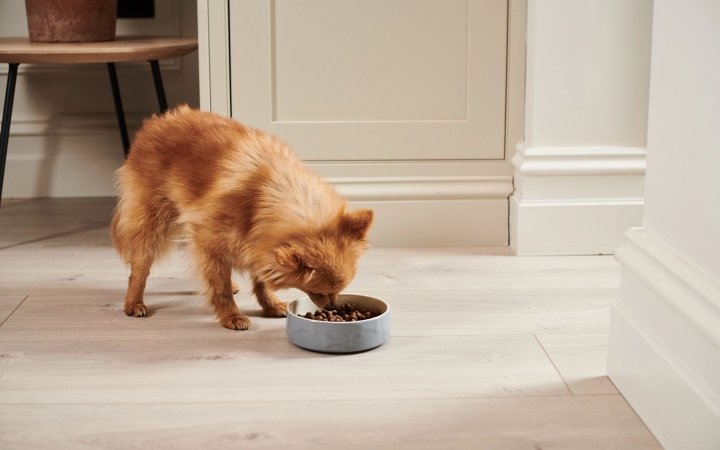

Neutering can predispose pets to weight gain
In the UK, it is estimated that 71% of our pets are neutered and there are lots of benefits of neutering our pets. Castrating dogs can help to prevent unwanted litters, reduce the risk of testosterone related diseases, help manage unwanted social behaviour, reduce urine marking and address hypersexuality.
Neutering female dogs can prevent ovarian and uterine cancers, infections of the reproductive system such as pyometras, and reduce the likelihood of mammary tumours.
However, neutering can predispose our pets to weight gain with neutered dogs being more than twice as likely to become obese as sexually entire dogs. It is believed that the energy requirement of our pets decreases following neutering, as a result of reduced physical activity and changes in feeding behaviour. Therefore, if we do not modify the way in which we feed them post-neutering, the calorie intake will exceed energy expenditure leading to weight gain.
Weight matters!
Keeping pets at their ideal weight can be a challenge, but it’s really important for their long-term health and well-being. Experts agree that pets who are maintained at their ideal weight throughout their life will live healthier and longer lives!
Being overweight increases the risk of your dog developing a range of other conditions and diseases such as:
- Diabetes
- Joint, bone and ligament damage
- Heart disease
- Tumours
- Liver disease
- Respiratory difficulties
Here’s our top 5 tips for keeping pets in shape after neutering…
1. Feed to your pet's ideal weight
The amount of food your dog should receive each day is based on their weight. Ask your vet or vet nurse to help you estimate your pet’s ideal weight and to calculate his or her daily ration on this.
If your neutered dog has already gained weight and you calculate his or her ration based on their current weight, you will give them more food than necessary and they will most likely continue to gain weight. On the other hand, if your dog is currently underweight, feeding based on their current weight will mean that they will never achieve a healthy weight.
2. Feed a diet specifically formulated for neutered pets
Diets specifically formulated for neutered dogs will have an adapted calorie level so that your pet will consume fewer calories whilst still receiving a satisfying amount of food in their bowl. Some will even contain a supplement called L-Carnitine, a fat burning ingredient.
Diets that are higher in protein also have a satiety effect, and can help to maintain muscle mass instead of encouraging the storage of unwanted fat.
3. Adapt your dog’s exercise
If you have limited time, adapt your pet’s exercise to make the most of the time you have. For example, your dog will work much harder chasing a ball than walking with you on a lead.
4. Tackle those treats!
We all like to offer our pets treats, but they can make a big difference to their daily calorie intake. Use some of their daily portion of food as treats – they will be just as happy with this as any other treat which may contain lots of excess calories.
5. Watch their weight
Weigh your pet regularly to keep an eye on their weight. By watching your dog’s weight you’ll be able to notice any increases or decreases early, allowing you to make changes before it comes a bigger issue. Your veterinary practice will not mind you popping in regularly to use their scales.
Ask your vet or vet nurse for more advice on how to keep your pet in shape following neutering.